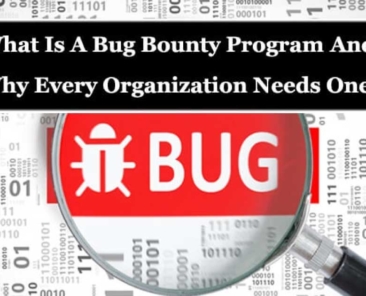Ethical hacking is swiftly turning into a lucrative spare-time activity — for a small chunk of white-hat hackers at least.
Program is the latest the tech giant has launched that pay users and security researchers to find vulnerabilities in its numerous products.
The Army paid “bug bounty” hackers more than $275,000 for detecting vulnerabilities in popular military websites, which defense officials say is a step toward creating a more secure cyberspace.
A public bug-bounty program for the Kubernetes container technology framework has just launched, backed by Google, HackerOne and the Cloud Native Computing Foundation (CNCF).
After falling victim to a data breach back in November, OnePlus promised it would launch a bug bounty program by the end of the year in order to further secure its phones.
As part of its ongoing efforts to boost the security of its VPN service, NordVPN has launched its own bug bounty program on the HackerOne platform.
Hacking the Pixel’s Titan M chip and finding exploits in the developer preview versions of Android will earn you the big bucks.
Bug bounties should be used more widely in an internet of things (IoT) sector that’s notorious for treating security as an afterthought, a new academic study suggests.
New research has revealed that four major data breaches – which cost over £265m in damages cumulatively, could have been prevented for as little as £9600 (collectively) with the use of bug bounty programs.
Microsoft has announced a bug bounty program for its open-source election software ElectionGuard, allowing researchers to uncover vulnerabilities and help bolster election security.
The tech giant will also be paying hackers who can find security flaws in its Portal device and in the Oculus Quest.
An eighth iteration of the Pentagon’s bug bounty program discovered a critical vulnerability in Department of Defense systems.
A Bug bounty program is also known as vulnerability rewards program (VRP) is the one where security researchers can disclose vulnerabilities and can receive recognition and compensation for reporting bugs.
The Libra Association rolls out Libra Bug Bounty Program, offering up to $10,000 for uncovering critical blockchain security issues underlying the unreleased cryptocurrency.
Facebook will start rewarding security researchers who report data abuse happening on Instagram, the company has announced. This is an expansion of Facebook’s Data Abuse Bounty program, which it introduced in April 2018.
Microsoft and Apple have both leveled up their bug bounty programs with new incentives for security researchers.
At Black Hat 2019 today, Microsoft announced the Azure Security Lab, a sandbox-like environment for security researchers to test its cloud security. The company also doubled the top Azure bug bounty to $40,000.
The Singapore Government has announced a new short-term bug bounty program to for external hackers to find vulnerabilities in nine key government-run websites.
Cross-site scripting, improper authentication and information disclosure were the top three vulnerabilities found by ethical hackers in 2018.
More than 30 security issues have been fixed in VLC, the popular open source media player, with developers praising an EU-funded bug bounty program for helping produce its most secure update yet.




















